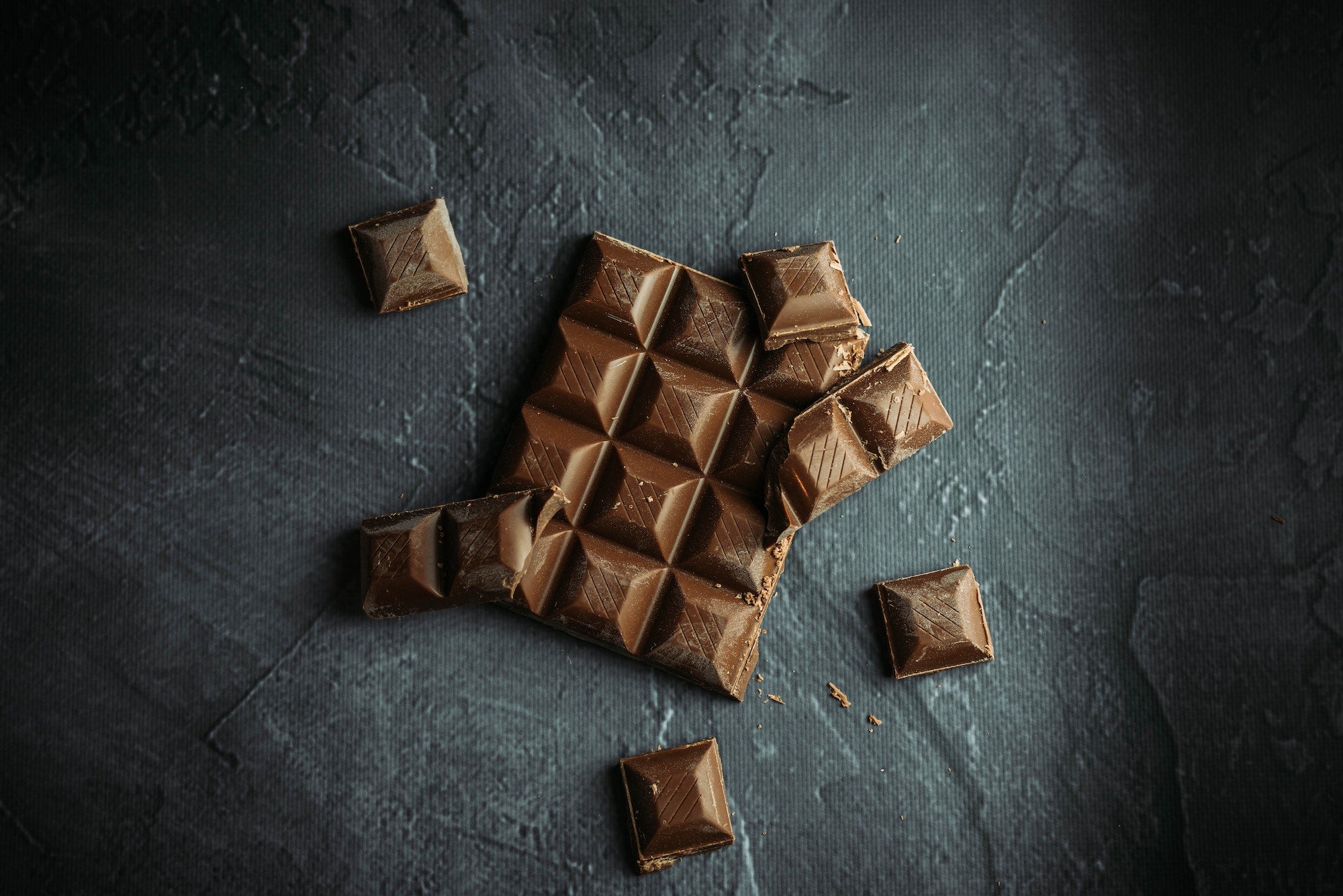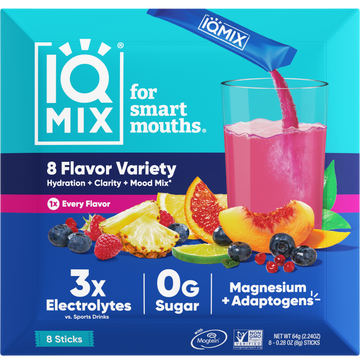In the grand symphony of our bodies, every cell, tissue, and organ plays a crucial role. However, one could argue that electrolytes—the minuscule charged particles that power our every movement, thought, and heartbeat—serve as the silent conductors of this incredible orchestra. But how do we obtain these vital performers? Through the foods, drinks, and supplements you consume!
So, what are the top dietary sources of electrolytes? And can you get enough electrolytes from food alone, or is taking an electrolyte supplement necessary? We’ll be answering those questions and more, but first, let’s start with the basics.
What Are Electrolytes?
Electrolytes are minerals found in our bodies that carry an electrical charge. The primary electrolytes in the body include sodium, potassium, calcium, bicarbonate, magnesium, chloride, and phosphorus.
They’re essential for a multitude of physiological processes, from regulating nerve and muscle function to maintaining fluid balance within the body. Electrolytes also play a vital role in energy production, bone building, pH balance, and heart and brain function. Essentially, these charged minerals are the sparks that ignite and sustain the biochemical reactions that power every aspect of our bodily functions.
Electrolytes are lost through sweat, urine, and other bodily fluids and must be replenished through your diet. If you don’t adequately replenish your electrolytes, you can develop an electrolyte imbalance. Signs of electrolyte imbalance may include fatigue, muscle cramps, headaches, nausea, and heart palpitations.
The Best Dietary Sources of Electrolytes
A balanced diet rich in whole foods can help ensure you get a sufficient amount of electrolytes. Let’s take a look at the top electrolytes, their food sources, and the daily recommended amount.
Sodium (and Chloride)
While it’s true that many of us consume too much sodium through processed foods, sodium is nevertheless a vital electrolyte. It helps control fluid balance in our bodies (aka, hydration) and assists in nerve signal transmission.[*]
Sodium also plays a role in regulating various hormones, including aldosterone, renin, and vasopressin. Notably, vasopressin, also known as the antidiuretic hormone, assists in maintaining undisturbed sleep patterns. It achieves this by reducing the frequency of nighttime urination, allowing us to enjoy a full night’s sleep without the need to groggily navigate to the bathroom every 90 minutes.
Good sources of sodium include:
- Table salt, sea salt, or Himalayan salt (used in moderation to salt your food)
- Seaweed
- Beets
- Celery
- Leafy greens (especially spinach)
Here’s the kicker: it’s almost impossible to get enough sodium from healthy, whole foods alone, as they simply don’t contain much sodium. For those following a whole foods diet, added salt is a must.
Aim for a daily intake of 4-6 grams of sodium daily. This might sound high, but research has shown that this range is linked to a lower risk of heart attack and stroke than the sodium intake in line with government recommendations (2.3 grams daily).[*]
You can also boost your sodium intake with an electrolyte supplement like IQMIX. Each packet contains 500 mg of sodium.
Note: Sodium and another electrolyte, chloride, are typically inseparable, forming the compound we commonly know as salt (or NaCl). Though chloride is a crucial electrolyte, rest assured that if your sodium intake is adequate, your chloride intake will likely be adequate as well.
Potassium
Sodium and potassium work in harmony within our bodies, and their roles are particularly intertwined when it comes to the functioning of our nervous system. Whether it’s prompting a muscle to move, sparking a thought, or lulling the body into sleep, sodium and potassium ions are the essential players. They literally construct the gradient that enables nerve impulses to be transmitted.[*]
Like sodium, potassium also plays an important role in regulating fluid balance in our bodies. When the balance between sodium and potassium shifts towards a higher sodium concentration, this can lead to an increase in fluid volume, subsequently causing an elevation in blood pressure.
Foods rich in potassium include:
- Bananas
- Sweet potatoes
- Avocados
- Leafy greens
- Mushrooms
- Asparagus
- Cooked lentils
- Dried apricots
- Salmon
- Tomato
- Cantaloupe
Humans should aim to get about 3.5-5 grams of potassium daily—and the bulk of this should come from whole foods.[*] If you fall a little short, a potassium-containing electrolyte supplement like IQMIX can help you meet your goal. Each packet of IQMIX contains 450 mg of potassium.
Magnesium
Magnesium is a workhorse mineral in our bodies, acting as a cofactor for more than 600 enzymes in the human body.[*] This includes key functions such as facilitating muscle and nerve activity, maintaining steady heart rhythms, and bolstering the health of our immune system, among other crucial roles.
Foods that are rich in magnesium include:
- Leafy greens (especially spinach, Swiss chard, and collard greens
- Pumpkin seeds
- Beet greens
- Summer squash
- Sunflower seeds
- Black beans
A good daily target for magnesium intake is 400-600mg, but more won’t hurt and could possibly be beneficial.[*] If magnesium-rich foods aren’t your cup of tea or you’re falling short of your target, supplementing with IQMIX can pick up the slack. Each packet of IQMIX contains 750 mg of Magtein®, a clinically studied form of magnesium (magnesium L-threonate) that supports cognition and mood.
Calcium
Calcium is a cornerstone mineral for health, best known for its pivotal role in establishing and maintaining strong bones and teeth. But its responsibilities don’t stop there. It also aids in nerve signaling, muscle contraction, and blood clotting, making it a vital player in overall body function.[*]
If you don’t consume enough calcium, your body will take it from your bones. You don’t want that. To avoid this, aim to consume about one gram of calcium daily. Getting calcium from foods is best, as some evidence suggests calcium supplementation may increase heart disease risk.[*]
Calcium-rich foods include:
- Kale
- Sardines with bones
- Sesame seeds
- Broccoli
- Dairy products (cheese, yogurt, milk, etc.)
- Tofu
Getting Electrolytes Through Food vs. Supplements
While it’s ideal to derive most of your electrolytes from a balanced diet, some circumstances may necessitate the use of supplements.
Such scenarios can include:
- Following a low-carb or ketogenic diet
- Engaging in intense workouts, particularly in hot climates
- Experiencing an extended period of vomiting or diarrhea
- Consuming insufficient amounts of electrolyte-rich foods
Sodium and chloride are easily obtainable from table salt, but supplements can be a useful source of magnesium and potassium, especially for those experiencing one of the above situations. It’s generally advisable to avoid supplemental calcium, though.
Bottom line? Prioritize getting most of your electrolytes from a healthy diet, but don’t hesitate to supplement with additional sodium, potassium, and magnesium when necessary.
We created IQMIX as a quick and easy way to optimize your electrolyte levels. Simply mix a packet of IQMIX into a glass of water to create an instant electrolyte drink that’s perfect for pre-workout and post-workout, fun in the sun, travel, and anytime wellness.
IQMIX is also ideal for those following a keto plan, as it contains zero sugar and only 3 grams of carbs per packet. Compare that to your typical 16-ounce sports drink, which contains between 28 and 38 grams of added sugar—equal to about 7 to 10 teaspoons.
IQMIX comes in various flavors, including Lemon Lime, Blood Orange, Peach Mango, and Blueberry Pomegranate. Try our 8-Stick Sampler to find your favorite IQMIX flavors, or go all-in with our 20-Stick Variety Pack. Also, don’t miss our new limited edition 20-Stick Tropical Pack!
Written by Katie Koschalk, a health and wellness writer, certified holistic nutritionist, and certified personal trainer based in California.




